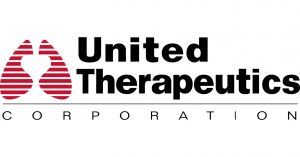
8 TEDCO Talks for Biotech and Life Science Enthusiasts in the BHCR
‘TEDCO Talks’, a video series launched by TEDCO in November 2020, serves as a platform for individuals to hear from thought leaders on economic development in the BioHealth Capital Region (BHCR), and particularly in Maryland. These 30-minute virtual ‘fireside chats’ cover a range of topics, such as advice to small businesses dealing with COVID-19, available funding programs and benefits, diversity and inclusion, and more.
Through engaging discussions with TEDCO’s CEO and Executive Director, Troy LeMaile-Stovall, leaders from the BHCR share their insights into the emerging trends, challenges, and opportunities facing life science and biotech companies.
“For all of our Maryland entrepreneurs and beyond, this is a resourceful and cost-effective way to learn about significant programs and players in state’s innovation ecosystem that can help them grow their businesses,” shared Tammi Thomas, TEDCO’s Chief Marketing & Communications Officer and Executive Producer of TEDCO Talks.
All 26 TEDCO Talks can be found on the company’s website. Here, we highlight and recommend 8 TEDCO Talks that might be of particular interest to biotech and life science enthusiasts in BHCR, including;
- Secretary Kelly Schulz, Maryland Department of Commerce
- Marty Rosendale, CEO, Maryland Tech Council
- Richard Bendis, CEO, BioHealth Innovation
- Christy Wyskiel, Senior Advisor to the President of Johns Hopkins University for Innovation & Entrepreneurship
- Chancellor Jay Perman, University System of Maryland
- Sally Allain, Head of JLABS @ Washington DC
- Elizabeth Cho-Fertikh, Co-Founder & Managing Director, MEDA Angels
- Chris Frew, Founder, Workforce Genetics & BioBuzz Media
Read below to see what you’ll get out of each episode.
Secretary Kelly Schulz, Maryland Department of Commerce
How has the Maryland Department of Commerce supported businesses through the COVID-19 pandemic?
Since 2019, Secretary Kelly Schulz has played an active role in accelerating economic growth across the state of Maryland. As the head of the Maryland Department of Commerce, she helps to make Maryland a great place for doing business, especially in life science, and promotes workforce development and economic development through meaningful collaborations with local agencies and subject matter experts.
During her talk with TEDCO, Secretary Schulz discussed the pivotal role that the Department of Commerce plays in fostering entrepreneurship in Maryland. In recent years, the Department’s efforts in expanding, retaining, and attracting new jobs have helped launch hundreds of startups and encouraged big companies to set up manufacturing facilities in Maryland.
The role of the Department of Commerce shifted significantly during the COVID-19 pandemic. In March 2020, Governor Hogan tasked the Department of Commerce with the responsibility of helping Maryland businesses sustain themselves through the pandemic. So far, approximately $200 million of business relief grants and loans have been distributed to thousands of Maryland businesses, including life science and biotech startups. With all her employees working remotely, Secretary Schulz shared how she adapted her leadership to make sure all staff at the Department of Commerce were equipped to work remotely and supported both professionally and personally.
COVID-19 and recent advances in research have transformed the landscape of jobs that will be in demand in the following years. To this effect, Secretary Schulz also stressed the need for institutes of higher education to develop pipeline programs and certificates to address the evolving workforce expectations.
You can watch the full talk with Secretary Kelly Schulz here.
Marty Rosendale, CEO of Maryland Tech Council (MTC)
How has and will technology in Maryland evolved during the COVID-19 pandemic?
Marty Rosendale, CEO of the Maryland Tech Council described how the advances in technology as a result of COVID-19 will impact business in the long run. As an organization that works closely with Life Science and Technology companies, MTC was able to play an important role in codifying a community-led response to several pandemic-led problems in the past 18 months.
Since March 2020, the pandemic has forced millions to take part in the unprecedented experiment of working from home. Despite everyone’s reservations and fears, modern technology in the form of virtual meeting platforms, cloud sharing resources meant that employees could remain productive and supported while working remotely. Both employers and employees have discovered the benefits of working from home and are in favor of hanging onto these benefits even when the pandemic ends. As biotech and life science companies open up for in-person interaction, many will be offering a hybrid working model for their employees.
Life science and biotech companies have also reaped the benefits of increased collaboration. Since well before the start of the pandemic, Maryland has been building the largest and most sophisticated vaccine development cluster in the country. The region’s leadership role in this sector took a world stage as indicated by the $9B in funding that came into the region through Operation Warp Speed. Marty points out that many recent success stories in our region are the direct result of the increased collaborations between businesses, government agencies, regulatory bodies, etc.
While touting the merits of recent technology advancements, there are a few drawbacks that need to be addressed. Lack of access to technology has widened the social and economic divide in the country. Over recent years, MTC has been applying technology to increase diversity and inclusion, particularly within the workforce and leadership development in the BHCR. He stressed the importance of diversity and inclusion in the long-term success of the region.
“If your inner circle is not diverse, then neither is your perspective. And if you don’t have a diverse perspective, you’re not going to be competitive in the marketplace”
-Marty Rosendale, CEO of the Maryland Tech Council
You can watch the full talk with Marty Rosendale here.
Richard Bendis, CEO of BioHealth Innovation
How can BHCR leverage its strengths to establish itself as a leader in life sciences and biotechnology?
BioHealth Innovation is a regional innovation intermediary that accelerates and facilitates technology transfer and commercialization of market-relevant research in federal labs, universities, and biohealth companies in the Region. Rich Bendis, CEO of BioHealth Innovation, who has spent decades launching startups, ventures and establishing multimillion-dollar organizations across the country, shared his insights into the development of BHCR’s future ecosystem.
Considering that Maryland is one of the most educated states in the country, Rich discussed ways that BHCR companies can leverage opportunities and technologies to ensure their long-term success. The life science and biotech landscape of our region is currently witnessing a cultural shift: previously regarded as an academic and government hub, BHCR is now being rebranded as the go-to hub for entrepreneurs, venture capital firms, and startups. This is in part, to the region’s tremendous efforts during the COVID-19 pandemic. Many of our region’s organizations stepped up and delivered essential services, diagnostic tools, therapeutics, and vaccines for the country.
The pandemic has modernized the business and hiring practices of many organizations. As Rich shared, several of his company’s recent hires hail from different parts of the country, who may not need to relocate to Maryland any time soon. The increased popularity of remote working raises the likelihood of talent residing in rural/non-metropolitan areas of the state. In turn, this could lead to the birth of entrepreneurial opportunities and economic development within those local spaces.
BioHealth Innovation’s recent conversations have included international companies from France, Italy, etc, who are looking to establish a foothold on US soil, and might make BHCR their first home. The ability to conduct meetings virtually from anywhere across the world has opened the doors for limitless business opportunities for our region’s organizations.
You can watch the full talk with Rich Bendis here.
Christy Wyskiel, Senior Advisor to the President of Johns Hopkins University for Innovation & Entrepreneurship
How is Johns Hopkins preparing future entrepreneurs and developing the Maryland economy?
As the Executive Director of Johns Hopkins Technology Ventures, Christy Wyskiel helps launch and commercialize inventions by faculty, staff, and students at Johns Hopkins University (JHU). With 2.5 million dollars of research funding, her organization aims to maximize the impact of JHU’s excellence in research and collaborate with investors and industry leaders to develop and deliver real-world solutions to the unmet needs of today. Some of JHU’s recent projects have included the development of higher-efficiency batteries, the creation of carbon-neutral shipping industries, and the development of highly sensitive cancer diagnostics, among many others.
Among its many efforts to improve diversity in science and technology, JHU has developed programs to guide aspiring women entrepreneurs and entrepreneurs of color and set them up for success. Part of Christy’s personal mission is to rebrand and develop Baltimore as a center for technology and entrepreneurship. There are several universities and innovation hubs that Johns Hopkins Technology Ventures collaborates with to attract future talent to the Baltimore area.
As Christy pointed out, entrepreneurship should also address the societal needs of our time. The Social Innovation Lab (SIL) at JHU supports early-stage, mission-driven ventures, and technologies to create change and opportunity in the Baltimore area. Their six-month accelerator program provides Baltimore startups with the resources to develop solutions that directly impact the community. Some successful ventures that have arisen out of this program include B-360 (that show students how the skills they have developed to maintain their bikes can open career opportunities in STEM), Happy Teacher Revolution (that hosts mental health and wellness support groups for teachers), and Parity (that creates equitable and affordable homeownership in Baltimore).
You can watch the full talk with Christy Wyskiel here.
Chancellor Jay Perman, University System of Maryland
How does the University System of Maryland support entrepreneurship and diversify access to education?
The University System of Maryland serves over 170,000 students across 12 institutions and 3 regional higher education centers in the state of Maryland. Its mission is to provide affordable access to education, perform groundbreaking research, offer services to individuals and communities, and support economic and workforce development. USM also promotes entrepreneurship and business development opportunities amongst USM affiliates. The Maryland Momentum Fund is an initiative of the University System of Maryland (USM) to provide late seed investment funding for promising technology ventures that come out of any of the 12 constituent USM institutions, its research parks, and its students, faculty, or graduates. With a $10M commitment from the USM, the Fund co-invests with venture capitalists, foundations, and angel investors, and has invested in 22 startups since 2017.
Access to equitable and affordable education has been the cornerstone of Chancellor Jay Perman’s leadership within USM. One of the USM institutions, the University of Maryland Global Campus, is a pioneer of online education. It serves over 90,000 students worldwide and is one of the largest distance-learning institutions in the world. Progression of online learning opportunities will offer students regardless of background, economic status, citizenship, and age, the opportunity to receive a quality education without putting a pause on their full-time work or entrepreneurial endeavors. Other institutes are also developing reputed accredited programs, with the goal to establish USM as a leader in equitable and accessible high-quality education.
In addition to ensuring improved access to education, Chancellor Perman stressed the need for the development of programs to recruit underrepresented communities to STEM opportunities at an early age. He shared his experience growing the extremely successful CURE Scholars Program (launched in 2015) at the University of Maryland, Baltimore. This year-round pipeline program prepares sixth- to 12th-grade students in West Baltimore for competitive and rewarding research, STEM, and health care career opportunities.
You can watch the full talk with Chancellor Jay Perman here
Sally Allain, Head of JLABS @ Washington DC
What role will JLABS play in the future of the BHCR?
The recent launch of JLABS @ Washington DC heralds a new era of innovation and entrepreneurship in the region. Part of Johnson and Johnson Innovation, the life science and healthcare incubator focuses on advancements in pharmaceuticals, medical devices, and consumer health. Anchored in the Children’s National’s Research Innovation campus in northwest D.C, JLABS offers a strategic location for international companies, startups, and established companies to establish a footprint in the nation’s capital.
Sally Allain, Head of JLABS @ Washington DC described the company’s proposed pipeline programs and initiatives to support regional startups. In particular, JLABS is currently building several programs aimed at encouraging more minority and underserved entrepreneurs. Its current global portfolio of companies is pretty diverse- 31% of them are women-led companies and 30% of them are minority-led companies. However, more steps need to be taken to improve and maintain a diversity of leadership.
You can also learn about the Blue Knights program, headquartered at JLABS @ Washington DC, which aims to build a footprint of innovative companies that are developing technologies and solutions in preparation for our next pandemic. The program has attracted many early participants who are developing technologies that include commercial preparedness applications, alternative delivery methods for vaccines, therapeutics, and diagnostic tools.
You can watch the full talk with Sally Allain here and read our previous coverage of this TEDCO talk here.
Elizabeth Cho-Fertikh, CEO of MEDA Angels
How can we increase funding and access to capital to underrepresented entrepreneurs?
In 2019, scientist-turned angel investor Elizabeth founded MEDA Angels, a healthcare-focused investor group comprising accredited investors who are physicians, scientists, successful med-tech entrepreneurs, and experts with backgrounds in regulatory, reimbursement, intellectual property & finance. The firm invests liberally in healthcare and wellness, including digital health, medical devices, diagnostics, imaging & wellness.
Like TEDCO, MEDA Angels helps launch promising startups and prepares them for more competitive Series A funding (most venture capital firms invest at the Series A stage). They provide strategic support and guidance to their funded early-stage companies. Many TEDCO-funded investments go on to receive funding from investor groups like MEDA Angels. As Elizabeth highlighted, there is a need for more awareness of funding opportunities for entrepreneurs. TEDCO itself has a Small Business Innovation Research (SBIR) program that encourages small businesses to explore their technological potential and provides the incentive to profit from its commercialization.
The increasing diversity of venture capital funding was another aspect of Elizabeth’s TEDCO talk. Based on the status quo, women entrepreneurs are not poised to get a fair deal. In 2018, only 3% of venture capital in the U.S went to companies with a female CEO. However, the number of female-owned businesses and female entrepreneurs continues to rise drastically. As we move forward, bias within the venture capital industry should be reexamined so that funds are indeed allocated to the best investment opportunities. Diversity is now being used as a guiding principle by investment firms to make investment decisions. To ensure both better investment outcomes and more gender balance in entrepreneurship, the bias hampering ventures at their earliest stages needs to be rooted out.
You can watch the full talk with Elizabeth Cho-Fertikh here.
Chris Frew, CEO of WorkForce Genetics and CEO of BioBuzz
How have companies adapted to recruit and attract employees, and help their workforce be supported during the COVID-19 pandemic?
Workforce Genetics is a life science talent solutions firm that has two divisions that support two important needs employers have when hiring top talent. The first is a recruiting division that specializes in helping growth stage or venture-backed biotech companies and life science companies attract scientific talent and leadership talent.
The other division is the widely recognized BioBuzz Media division which has become a go-to platform for life science professionals to stay engaged with what’s happening in the region through content and events. BioBuzz provides a highly engaged audience that life science employers can utilize to engage and attract new employees around their brand and mission. BioBuzz has been fostering long-term relationships and this trust with biotech employers within the BHCR for more than 11 years.
Chris spoke candidly about the impact COVID-19 on companies in the BHCR. Over the last year, both WorkForce Genetics and BioBuzz developed creative ways to deliver solutions to their clients and also keep their audiences engaged with the latest developments in the region. In-person networking and social connectivity were among BioBuzz’s regular pre-COVID19 activities. However, the pandemic encouraged both companies to offer more virtual experiences and creative services to connect talent to BHCR organizations. They hosted successful virtual recruiting events for big clients such Novavax, Lonza, Emergent Biosolutions, and GSK, all of whom were rapidly hiring talent to work on ground-breaking COVID-19 projects.
Companies are now developing online videos and creative content to highlight their unique mission and value proposition to prospective candidates. Their goal is to attract mission-aligned people with a clear understanding of how their skills will make a positive impact. Similarly, in lieu of in-person events, BioBuzz has been publishing high-quality content to foster a sense of community and awareness of individuals and activities in BHCR. Our region hosts a constellation of distinct, burgeoning life science ecosystems. BioBuzz aims to establish a nexus to bring these hubs closer together.
Like BioBuzz and WorkForce Genetics, many companies have pivoted their management styles to foster a more positive work culture and sense of community for their employees. As one CEO shared with Chris during the pandemic, “I’ve never seen my employees less but been closer to them than I am today”. Needless to say, numerous pandemic practices, popular to both employers and employees, will be here to stay.
You can watch the full talk with Chris Frew here.
- About the Author
- Latest Posts
Nivedita recently received her Ph.D. from the University of Maryland, Baltimore in biochemistry and molecular biology and an MS in law (patent law). She is passionate about science writing and communication, and is actively involved with the Maryland biotech scene through her work with Women in Bio- Capital Region , AWIS (Baltimore Chapter) and BioBuzz.







